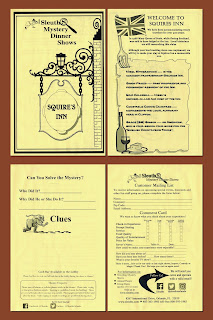Residential schools in Canada were set up in the 19th century, funded by the government and often run by the Church. Indigenous children were forcibly removed from their homes and taken to over 130 schools with the, “primary aim of assimilating Indigenous children”
Stories of abuse at these schools have been told for decades. After another 751 unmarked graves were discovered at the Marieval Indian Residential School site in Saskatchewan, Canada, the Native Women’s Association of Canada (NWAC) demanded that charges be laid over the deaths of Indigenous children at residential schools.
The NWAC asked that, “sites of former Indian residential schools be declared crime scenes and that an investigation into how each child buried there died — as well as into who is responsible for their deaths — be conducted…In Canada, we live under the rule of law. The law does not allow those who are responsible for the deaths of children to walk free with impunity.” This principle of investigating these deaths and charging anyone responsible has been widely discussed among Canadians.
To address this issue, I had the honour of speaking with Dr. Kona Williams, the only Indigenous Forensic Pathologist in Canada.
Forensic pathologists are medical doctors who are trained to autopsy bodies and come as close to the truth about the cause of death as is possible.
I asked, naively, why aren’t we investigating to charge people for the murder of these children?
Dr. Williams explained that she has had many talks with the Indigenous leadership and her colleagues in the forensic world about how to proceed as more gravesites are found. While acknowledging the anger and grief these gravesites are engendering, she explained that it is very complicated.
“We know that there are stories of children being injured and who died from these injuries, as well as children who died from malnutrition or not receiving medical care.”
“We know that some of these graves may be older than 50 years so we don’t have the legislation for those over 50 years on how to deal with these deaths.”
Deaths over 50 years ago are considered not ‘forensically relevant’ in Ontario because prosecuting deaths over 50 years ago is - in most circumstances - unlikely to yield convictions.
Dr. Williams then went on further explain how complicated the process of any investigation would be. “It’s going to be hard for families and communities to decide what to do. Some will want to let them rest, some will want it investigated… It’s up to the families and communities. “These are difficult discussions. This can’t be forced. it has to be driven by what the communities want. “We might not be able to find all the children, or identify all of them or even maybe not even find the cause of death. What do you want us to do then? “The investigation is more complicated if we only have bones. If they died of pneumonia - bones aren’t a lot to go on. If it’s malnutrition or blunt trauma, that’s easier. “It’s going to be hard for families and communities to decide what to do. Some will want to let them rest, some will want it investigated.
“Also, with my work, generally we have records that we compare to the body, for example, dental records. Here we only have bones so we could get DNA but we would have to go to the community and ask if they would provide DNA samples to compare…the ethics around this are huge. How do we ensure that the information is kept securely and not used for anything else?”
When I asked how would they even know which body to exhume if some families and communities don’t want an investigation and some do?
“We need to ask the communities about how to proceed. I’m happy to provide the expertise, but I’m not going to do it without the permission of the people involved”
When I asked if there were about 150,000 children in these schools, Dr. Williams said, “That’s an estimation, because we really don’t know. The records kept by the government and church aren’t always clear. The Catholic church has never provided the records that they have…do we have the authority by law to get these records? I asked [someone recently] do we have the authority to subpoena the Catholic church?”
Then Dr. Williams added, “There is something I’ve been chewing on. There is a ‘death in custody’ if the person is being held against their will, they may be some responsibility on the part of the people whose care they’re in…legally this is an interesting question. The custodians and institutions can be held responsible…Can this be put under “death in custody”? Would this allow these people to be charged past the 50 years? Dr. Williams replied, “Potentially. The legislation doesn’t exist - it might still be limited by ‘forensically relevant’.
“My colleagues and I have been discussing how to investigate these sites. People will get traumatized and re-traumatized, digging up bones is traumatic, and the proper ceremony, protocol must be followed.
“Some people have been asking about the cost - how can we put a price on this? We don’t know how many children there are, and we don’t know the cost. When people ask how much is this going to cost to dig up these kids, I say - I don’t know, how much would it cost to dig up yours if they were your kids? Would you not want everything done? Would you not want to know what happened and would you not want someone to pay for this? The last school closed in 1996 - it’s not ancient history.”
How to proceed, whether to proceed in some cases, in investigating the gravesites at residential schools is indeed complicated. I thank Dr. Williams for giving us a glimpse into the difficulties and how to proceed respecting the Indigenous community because surely, the utmost respect must be given to these children, their families and communities.











































